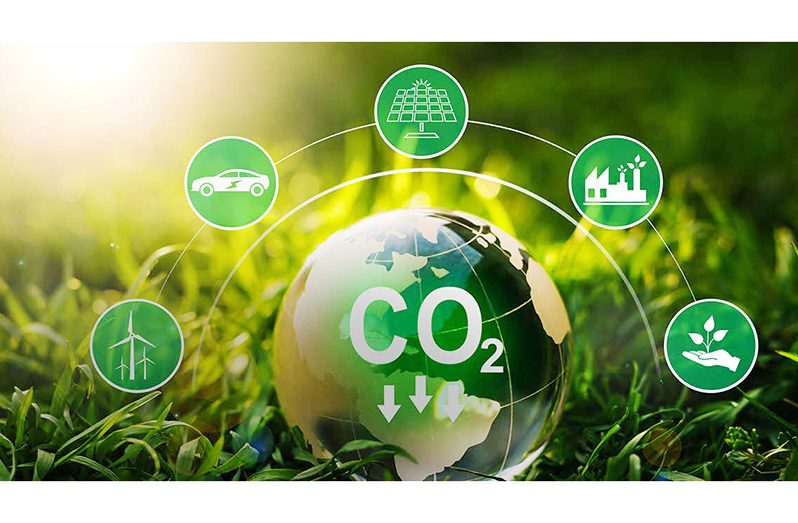Dr Jagdeo affirms
THE government, through the Ministry of Natural Resources, recently released the new and modernised Petroleum Activities Bill, which has attracted positive reviews because of its wide scope compared to the outdated Petroleum (Exploration and Production) Act (1986).
Vice-President, Dr Bharrat Jagdeo, during a press conference at the Office of the President on Thursday, expounded on a number of specifications within the draft Bill, including the carbon storage section and how it relates to Guyana’s net-zero emissions’ goal.
According to Dr Jagdeo, while there are some globally extreme views on what is the solution to achieving net-zero emissions, the Government of Guyana has proposed a number of measures to accomplish it such as reducing fossil fuel production and introducing new technologies.
He related: “Now, globally, people are saying it will come from a combination of things. We believe that you have some extremist views, but our view is that you would achieve net zero through a combination of measures.”
Since fossil fuels are still needed to operate a number of fields, such as the cosmetic industry, one cannot discontinue production. The compromise, according to Dr Jagdeo, is to lower fossil fuel production to meet the net-zero objective while continuing to produce oil to support certain industries.
“One is to reduce fossil fuel production globally from 100 million barrels per day to maybe 25 million barrels by 2050. That is consistent with the IEA estimate, because they would still need oil for a number of things, including the cosmetic industry and a whole range of [things]. So, that’s one of the measures,” the Vice-President remarked.
Additionally, Dr. Jagdeo made an argument for the use of renewable energy, which is outlined in Guyana’s Low Carbon Development Strategy 2030.
Notably, Guyana is already making great progress to wean away heavy reliance on fossil fuels by putting renewable energy projects in place all around the nation in both the public and private sectors.
Additionally, regarding the use of revolutionary technology, Dr Jagdeo said: “So, technology is now being developed that you can directly extract CO2 from the atmosphere.”
He further explained: “Carbon capture and storage has been studied as one of the ways where when the methane or the CO2 comes out, you capture, reinject and seal it, so it doesn’t come into the atmosphere through new technology.”
In the oil and gas, owing to technology, the new Floating, Production, Storage and Offloading (FPSO) units are 25 per cent less carbon intensive, when compared to the previous vessels.
Oil giant ExxonMobil has also already asked to study carbon capture. The Petroleum Activities Bill states that the minister may grant rights for prospecting for and exploration of underground carbon dioxide storage sites under such terms and conditions prescribed by regulation.
“…Exxon has already asked to study carbon capture and storage. So, our laws now can allow people or direct them. The minister can direct them to do some of these things in the future. The old law would not allow that,” Dr Jagdeo said.





.jpg)








